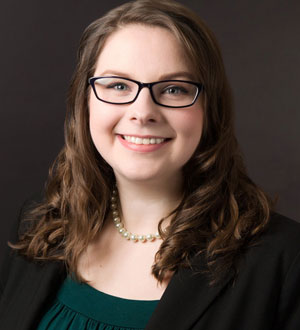Washington is known for our environmental stewardship. That’s why Washington voters passed Initiative 97 in 1988. The Initiative triggered creation of the Model Toxics Control Act, which supports cleanup of contaminated land and prevents future contamination across Washington. The Model Toxics Control Act has several tools that support environmental cleanup, including Remedial Action Grants, which provide funding to local governments to investigate and clean contamination. Currently, our elected leaders in Olympia are considering how to adequately fund these important environmental stewardship protections. The House, Senate and our Governor should provide a stable and reliable long-term funding source so that our waterfronts and the industries that rely on them – particularly our maritime sector – can thrive.
Ports own and manage significant amounts of waterfront property in Washington. A great deal of this land is contaminated from industrial operations that took place before environmental regulations were in place. It is too expensive for ports to clean these properties on their own. The Port of Ridgefield, for example, leased lakefront land to an industrial tenant, Pacific Wood Treating, for years. When Pacific Wood Treating went bankrupt in 1993, it left the port with significant liability for cleanup. The land required removal of 1,222 tons of hazardous waste before it could be developed for other uses, costing over $50 million for cleanup. With the help of Remedial Action Grants under Washington’s Model Toxics Control Act, the site is now restored for development.
When ports thrive, communities thrive. Without Remedial Action Grants, ports can be stuck in a holding pattern, unable to use their property until cleanup is completed, but unable to generate revenue for cleanup because they cannot put that asset to better use. According to a 2010 Department of Ecology study, 92 percent of Remedial Action Grants allocated in 2006 went directly to port remediation projects. Ports received an average of 49 percent of those grants between 1993 and 2010. When grants are allocated, ports clean their properties and land is used for the public benefit. Ports support parks and recreation activities and lease land for industrial uses, which brings additional jobs and bolsters local economies.
In large part, the revenue for these grants derives from taxes on hazardous substances. Past projections assumed that gas prices would remain stable and that this program would be adequately funded. However, grant revenue dropped as gas prices decreased, resulting in a funding shortfall. In addition, an ever growing percentage of funds have been diverted to the state’s general fund.
Without adequate, reliable funding, port property throughout the state will sit vacant; however, if grant shortfalls are fixed and new cleanups are funded, ports can use the remediated property for recreational land or lease it to industrial tenants, which would boost the economy and bring jobs to the community.
The House and the Senate are debating different ways to fund these important cleanup projects. The Senate version of the bill, for a variety of important reasons, is the best fit for supporting the long-term success of these cleanup efforts. Some notable features of the Senate and House Bills are as follows:
Both bills appropriate funding to fill the MTCA funding gap.
The Senate Bill provides an additional $7.5 million in new Remedial Action Grants for five projects, whereas the House Bill does not.
The Senate Bill considers the possibility of a future shortfall and allows all Model Toxics Control Act accounts to equally share in any loss. Under the House Bill, cleanup funding will be first on the chopping block in the event of a shortfall.
The Senate Bill relies on general obligation bonds to fund the Model Toxics Control Act, whereas the House Bill relies on funding from increased taxes.
The House and the Senate have both passed their respective legislation and now both chambers must approve a Capital Budget Bill before it can be signed by the Governor. At this stage, the House and Senate are considering each other’s bills to determine which will move forward.
The Senate Capital Budget Bill provides stable, reliable funding for Remedial Action Grants, and thus to Washington’s ports. The House Bill, on the other hand, provides funding for the Model Toxics Control Act, but that funding will be less reliable and would not support additional cleanups.
Ultimately, the Senate Bill provides the greatest support for ports that rely on Remedial Action Grants. With funding, port properties can be redeveloped and help Washington economies thrive.
Kyler Danielson is an environmental and land use attorney with Schwabe, Williamson & Wyatt.



